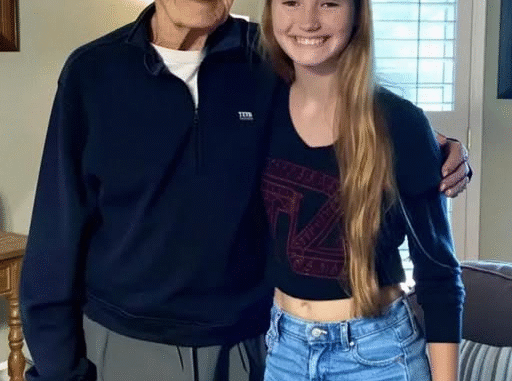
Eighteen-year-old Dahlia stood graveside in a black dress two sizes too tight, the priest’s monotone mixing with October wind. Around her, the family hissed like kettles—“One lousy dollar each!”—while she felt only hollow. Grandpa had been her lighthouse; now he was gone, and all they wanted was a payout.
When a silver-haired stranger pressed a folded scrap into her palm—“from your grandpa, for your eyes only”—Dahlia’s pulse kicked. She slipped away, unfolded the paper, and laughed aloud: Locker 111, Southern Railway Station. The childhood “treasure hunt” wasn’t a joke after all.
That night the note lay under her pillow like contraband. At dawn she crept past her mother’s angry phone calls, hailed a cab, and rode twenty jittery minutes to the station. Diesel and popcorn hung in the air as she found the locker, slid in the taped key, and heard the metallic click of possibility.
Inside waited an old duffel—faded, heavy, unzipped to reveal stacks of crisp hundreds. A scribbled note in Grandpa’s unmistakable scrawl read: Everything I saved is yours. Live free, kiddo. The others never saw your worth, but I always did.
Tears blurred the bills as Dahlia clutched the bag and the promise. No more family dinners thick with resentment, no more being invisible. She hailed the same cab, skipped her front door entirely, and bought a one-way ticket to anywhere.
Dawn painted the city gold as the plane lifted off. In her lap sat $150,000 in cash and a lifetime of permission. For the first time in eighteen years, Dahlia knew exactly what freedom tasted like.